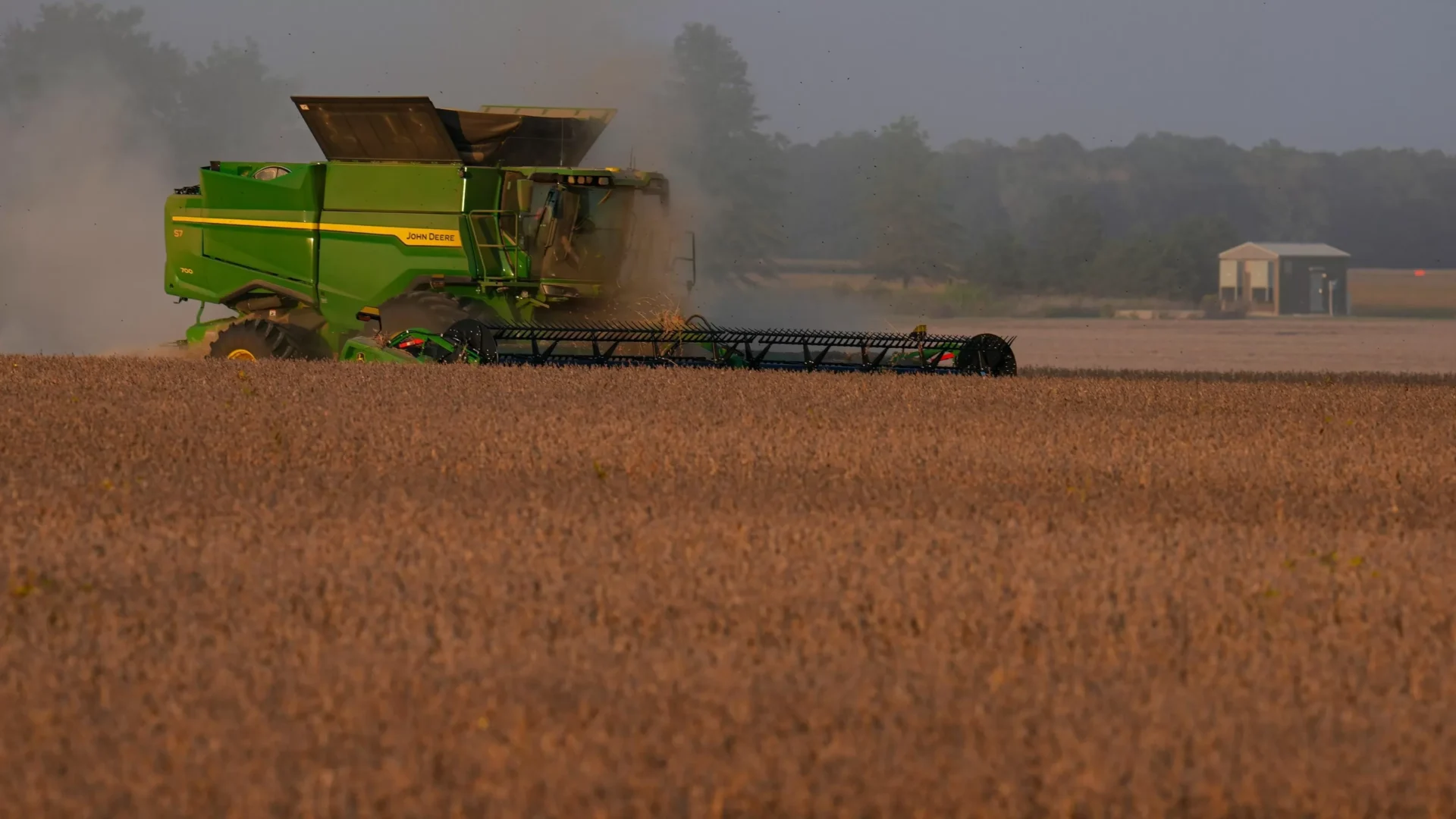American farmers are breathing a sigh of relief as China has promised to buy some of their soybeans. This news comes as a welcome respite for farmers who have been struggling with the impact of the ongoing trade war between the United States and China. However, Iowa farmer Robb Ewoldt cautions that this alone won’t solve all the problems faced by farmers. Despite the positive development, farmers are still grappling with soaring prices for essential farming supplies such as fertilizer, tractors, repair parts, and seeds.
The trade war between the two economic giants has taken a toll on American farmers, who have been hit hard by retaliatory tariffs imposed by China on numerous agricultural products, including soybeans. This resulted in a sharp decline in demand for American soybeans, which led to a surplus and a subsequent drop in prices. This, coupled with a wet spring and delayed planting, has left many farmers struggling to make ends meet.
Therefore, the recent promise from China to purchase American soybeans has been met with great enthusiasm by farmers across the country. This gesture is seen as a step towards mending the strained trade relationship between the two countries and providing much-needed relief to American farmers.
Robb Ewoldt, who farms soybeans and corn in Iowa, cautiously welcomes this news. While he acknowledges that the promise from China will provide a boost to the soybean market, he emphasizes that it is not a panacea for all the problems faced by farmers. Ewoldt points out that farmers are still dealing with the aftermath of the trade war, which has resulted in a significant increase in the prices of essential farming supplies.
The cost of fertilizers, tractors, repair parts, and seeds has skyrocketed, making it increasingly difficult for farmers to maintain their operations. Ewoldt highlights that the cost of fertilizers has increased by 25%, while the prices of tractors and repair parts have gone up by 5-10%. The rising costs are putting a strain on the already tight profit margins of farmers.
Moreover, the trade war has not only affected the prices of farming supplies but has also disrupted the supply chain. Many farmers are facing difficulties in obtaining necessary farming equipment and parts, further hindering their operations. This has resulted in delayed planting, which can have a significant impact on the yield and quality of crops.
Despite these challenges, American farmers remain resilient and determined to weather the storm. The promise from China to buy soybeans is a glimmer of hope for them, but they are aware that it is not a long-term solution. They urge the leaders of both countries to find a resolution to the trade dispute that will benefit both sides.
In the meantime, farmers are finding ways to cope with the rising costs. Many are turning to alternative farming practices, such as reducing the use of expensive fertilizers and exploring different seed options. Some are also diversifying their crops to mitigate the risks associated with relying solely on soybeans.
The farming community is also receiving support from the government. The recently announced aid package of $16 billion for farmers affected by the trade war has provided some relief. The package includes direct payments to farmers, commodity purchases, and funding for trade promotion programs.
In conclusion, the promise from China to buy American soybeans is a positive development that has been welcomed by farmers. It is a step towards rebuilding the trade relationship between the two countries and providing some much-needed relief to farmers. However, it is important to acknowledge that this alone won’t solve all the problems faced by farmers. The rising costs of farming supplies continue to be a major concern, and farmers are looking for a long-term solution to the trade war. Despite the challenges, American farmers remain resilient and are determined to overcome these obstacles and continue feeding the nation.

